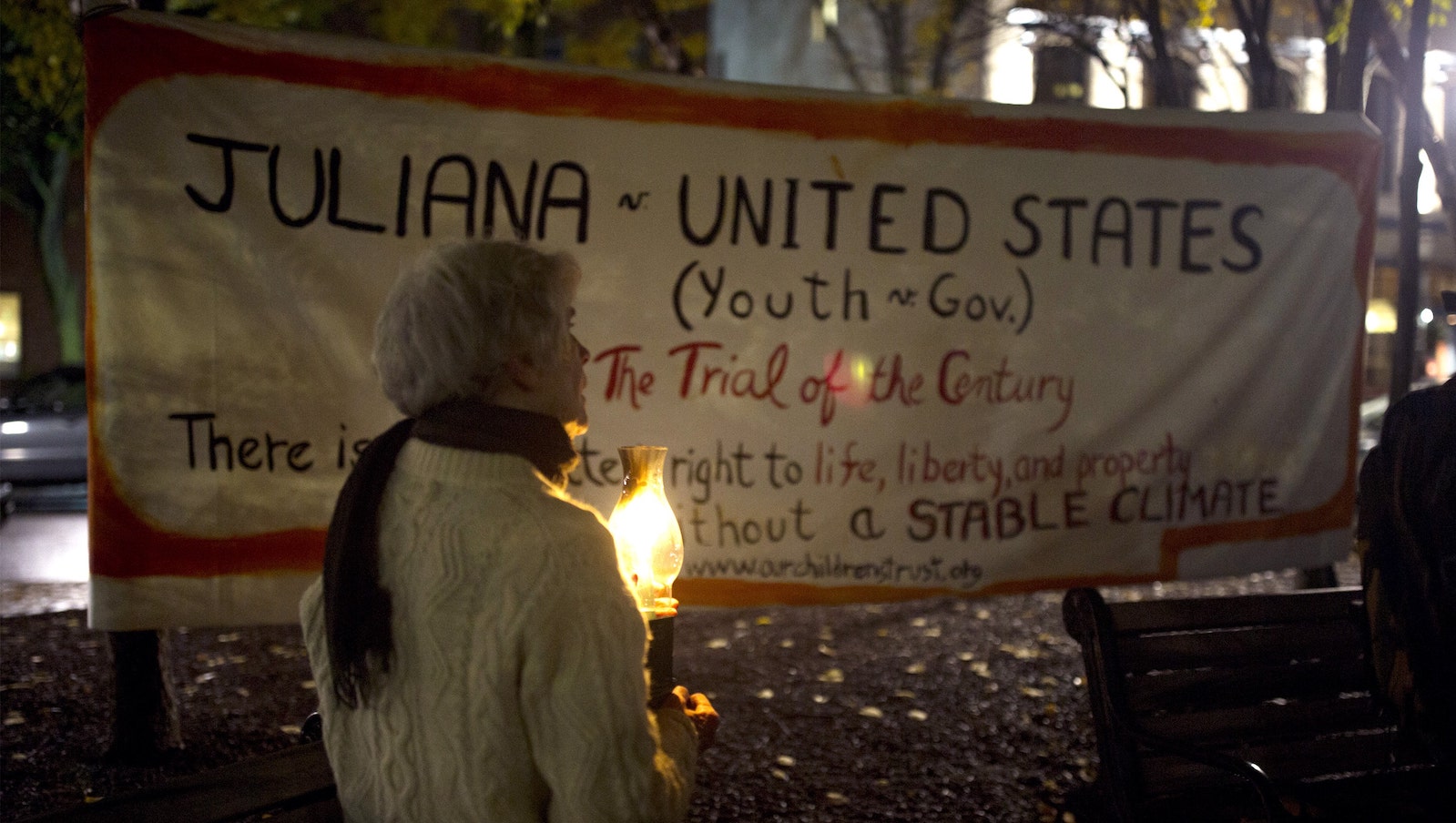In 2015, nearly two dozen American youth sued the federal government, alleging that the United States violated their constitutional rights by facilitating the burning of fossil fuels and allowing greenhouse gas emissions to rise to dangerous levels. Their case, known as Juliana v. U.S., was dismissed in federal courts, but inspired dozens of youth climate lawsuits including successful climate cases in Montana and Hawaiʻi.
Now, 15 of those same Juliana plaintiffs, including four Indigenous plaintiffs, are taking their case internationally in the hopes that the global community will pressure the U.S. government to act.
Last week, they filed a petition at the Inter-American Commission on Human Rights, a seven-member commission that for decades has evaluated human rights violations across 35 countries in the Americas. Kelly Matheson, an attorney at Our Children’s Trust who worked on the petition, said the case is about the “U.S. government’s unrelenting perpetuation of a fossil fuel energy system despite knowing for over 50 years that the emission of fossil fuels was catastrophic for human rights.”
The plaintiffs include Jaime Butler, who was forced to move off the Navajo Nation’s reservation in 2011 due to drought and water scarcity, and in 2014 had to evacuate her home in Flagstaff, Arizona, to escape the Oak Creek Canyon wildfire.
“She remembers times when there was enough water on the reservation for agriculture and farm animals, but now the springs they once depended on year-round are drying up, and it is no longer possible to engage in the traditional farming activities that once sustained her community,” the petition says. “She fears for her family members, all of whom live on the reservation, who will also be displaced from their land, which will further erode her culture and way of life and disrupt her family and community connections.”
The Navajo Nation declared a drought emergency in June and the problem is expected to worsen.
Their petition cites a recent opinion by the Inter-American Court of Human Rights that concluded the climate crisis threatens Indigenous peoples’ rights, including their right to cultural life, and lists several Indigenous plaintiffs like Butler whose lands and waters have been harmed by a warming atmosphere. “These are merely examples of the many cultural rights violations experienced by Indigenous youth throughout the United States from its fossil fuel energy system and the climate pollution it creates,” the petition says.
The Juliana plaintiffs’ petition asks the commission not only to rule on whether the youths’ rights were violated, but also to issue recommendations to the U.S. regarding climate change.
Maria Antonia Tigre, director of global climate change litigation at the Sabin Center for Climate Change Law at Columbia Law School, said it can sometimes take a decade for the commission to issue rulings. However, she said the case is still significant because the commission is the only international forum that is available to challenge the U.S. on its climate policies. “It’s another way for this to be part of the discourse and to show that something is being done about it and there is accountability, even though it does take a while,” she said.
Several international courts, including the International Court of Justice, the International Tribunal for the Law of the Sea, and Inter-American Court of Human Rights, have issued rulings concluding that countries have an obligation to mitigate climate change, but the U.S. has long rejected their jurisdiction.
In his first eight months in office, President Donald Trump has also pulled the U.S. out of many climate-related United Nations agreements and organizations, including stopping funding for the U.N. Framework Convention on Climate Change, and reneged on the 2015 Paris Agreement, a major climate treaty that sought to limit the severity of global warming. But the U.S. is still a member of the Organization of American States, a regional network of 35 countries in the Americas that was established in 1948 to promote peace, democracy and development. The Inter-American Commission on Human Rights, where the petition from the Juliana plaintiffs was filed, was established as part of the regional network to promote and protect human rights.
The Trump administration has also sought to end data collection on greenhouse gases, cut funding for domestic climate research, and fueled climate denialism.
“This ‘climate change,’ it’s the greatest con job ever perpetrated on the world,” Trump said at the United Nations last week. “All of these predictions made by the United Nations and many others, often for bad reasons, were wrong. They were made by stupid people that have cost their countries fortunes and given those same countries no chance for success. If you don’t get away from this green scam, your country is going to fail.”
The U.S. is an outlier in that perspective on climate. The global community has long recognized the scientific consensus that climate change is caused by the burning of fossil fuels, and that producing fewer greenhouse gas emissions is necessary to stem the warming of the planet. “Climate change is an unprecedented challenge of civilizational proportions,” the U.N. General Assembly said in a resolution backed by more than 100 countries two years ago. “The well-being of present and future generations of humankind depends on our immediate and urgent response to it.”
A favorable ruling from the Inter-American Commission on Human Rights would set a precedent from Canada to Patagonia, Matheson said, and add to a growing consensus in international courts that countries have a legal obligation to fight the climate crisis.
“Do we understand that the Trump administration won’t take that seriously? Yes. Do we understand that the Trump administration won’t abide by the recommendations or the authoritative decisions of these bodies? Yes, but the next administration might,” she said.
“Long term, it could help,” Matheson said of the U.S. “No matter what, it will help globally.”
Source link
Anita Hofschneider grist.org

